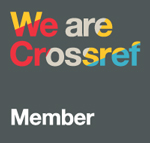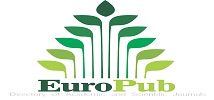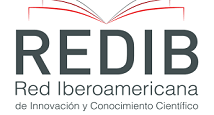Scientific projects and technological scientific literacy of students in Peruvian public educational institutions
DOI:
https://doi.org/10.51440/unsch.revistaeducacion.2023.22.463Keywords:
scientific projects; scientific and technological literacy; public institutions; students; teachers.Abstract
This academic work allows us to reflect on the relevance of research and innovation strategies that students use in science subjects, where students respond to academic activities using their instincts or simply by empirical experiences; However, it is necessary that to consolidate their learning, they have the ability to seek information and publicize their critical position, to achieve the scientific knowledge that respond to the problem posed. Therefore, the objective is to base the contributions of strategies such as school scientific projects and the need for students to attend public educational institutions have adequate technological scientific literacy, necessary to develop their ability to inquiry and deduction demonstrating research culture. The methodology used is based on the search and analysis of various documentary sources, of institutions that provide relevant contributions, such as the Ministry of Education, Concytec, INEI among others. This study allows you to inquire about strategies in the science area, creating spaces for meaningful learning, and thus develop logical principles of inquiry, research skills and scientific skills in students.
Downloads
References
Aguilar, F., Bolaños, G. y Villamar, J. (2017). Epistemological foundations to guide the development of knowledge. https://dspace.ups.edu.ec/bitstream/123456789/14904/1/Fundamentos%20epistemologicos.pdf
Arias, F. (2007). Metodología de investigación. Trillas.
Barber, M.O. (2008). Proyecto de investigación, su importancia. Revista Habana de Ciencias Médicas,7(4), 3. https://www.redalyc.org/pdf/1804/180414029001.pdf
Bernal, C.A. (2006). Metodología de la investigación. (2da.ed.). Pearson.
Bybee, R. (1997). Achieving scientific literacy: From purposes to practices. Portsmouth, NH: Heinemann.
Bybee, R. & Fuchs, B. (2006). Preparing the 21st century workforce: A new reform in science and technology education. Journal of Research in Science Teaching, 43 (4), 349-352. https://doi.org/10.1002/tea.20147
Campanario, J.M. y Moya, A. (1999). ¿Cómo enseñar ciencias? principales tendencias y propuestas. Investigación didáctica, 17(2), 179-192
Causil, L. A. y Rodríguez, A. E. (2021). Aprendizaje Basado en Proyectos (ABP): experimentación en laboratorio, una metodología de enseñanza de las Ciencias Naturales. Plumilla Educativa, 27 (1), 105-128. https://doi.org: 10.30554/pe.1.4204.2021
CEPAL (2012). Digital technologies for the challenges of inclusive education in Latin America. Some good practices. https://repositorio.cepal.org/bitstream/handle/11362/35386/S2012809_es.pdf
Concytec. (2015). Explore the various factors that influence the inclination of young people towards scientific and technological education. file:///C:/Users/USER/Downloads/jovenes-formacion-cientifico-tecnica_1.pdf
Concytec. (2016). Create to grow. National Policy for the Development of Science Technology and Technological Innovation. https://portal.concytec.gob.pe/images/documentos/Politica_Nacional_CTI-2016.pdf
Delgado, J. M. (2021). La investigación científica: su importancia en la formación de investigadores. Ciencia Latina Revista Científica Multidisciplinar, 5(3), 2385-2386. https://doi.org/10.37811/cl_rcm.v5i3.476
Diaz, G. L. (2023). Inquiry-based learning (ABI): a strategy to improve the teaching - learning of chemistry. Ciencia Latina Multidisciplinary Scientific Journal,7(1), 27-41. https://doi.org/10.37811/cl_rcm.v7i1.4378
García-Valcárcel Muñoz-Repiso, A. & Basilotta Gómez-Pablos, V. (2017). Project-based learning (ABP): evaluating the perspective of elementary school students. Educational Research Journal,35(1), 113-131. http://dx.doi.org/10.6018/rie.35.1.246811
González, D.; Olarte, F. y Corredor, J. (2017). La alfabetización tecnológica: de la informática al desarrollo de competencias tecnológicas. Estudios Pedagógicos, 13 (1), 193-212. https://www.redalyc.org/articulo.oa?id=173553246012
González, N., Zerpa, M. L., Gutiérrez, D., & Pirela, C. (2007). Educational research in teaching. Laurus, 13(23), 279-309.
Hernández, R., Fernández, C. y Baptista, P. (2010). Metodología de la investigación. (4ta.ed.). Mc Graw Hill.
INEI. (2016). Educación. https://www.inei.gob.pe/estadisticas/indice-tematico/education/
Macedo, B. (2016). Educación científica. https://repositorio.minedu.gob.pe/bitstream/handle/20.500.12799/5025/Educaci%C3%B3n%20cient%C3%ADfica.pdf?sequence=1
Minedu. (2015). Learning routes, science technology and environment curricular area, sixth cycle. Quad/Graphics
Minedu. (2015). Learning Routes, Curriculum Area Science Technology and Environment, Seventh Cycle. Quad/Graphics
Minedu. (2016). Currículo nacional de la educación básica. http://www.minedu.gob.pe/curriculo/pdf/curriculo-nacional-2016-2.pdf
Navarro, M. & Foster, C. (2012). Level of scientific literacy and attitudes towards Science in high school students: comparisons by sex and socioeconomic level.
Educational thought. Latin American Educational Research Magazine, 49(1), 1-17. https://doi.org/10.7764/PEL.49.1.2012.1
OCDE (2009). PISA 2009. Assessment framework-key competencies in reading, mathematics and science. OCDE
Ortega, I. (2009). La alfabetización tecnológica. Teoría de la Educación. Educación y Cultura en la Sociedad de la Información, 10(2), 11-24. http://www.redalyc.org/articulo.oa?id=201017352003
Ossa-Cornejo, C., Palma-Luengo, M., Lagos-San Martín, N. y Díaz-Larenas, C. (2018). Evaluation of critical and scientific thinking in pedagogy students of a Chilean university. Electronic Journal Educare, 22(2),204-221. http://dx.doi.org/10.15359/ree.22-2.12
Pamplona-Raigosa, J., Cuesta-Saldarriaga, J.C. y Cano-Valderrama, V. (2019).
Estrategias de enseñanza del docente en las áreas básicas: una mirada al aprendizaje escolar. Revista eleuthera, 21,13-33. https://doi.org/10.17151/eleu.2019.21.2
Parejo, J.L. y Pascual, C. (2014). La pedagogía por proyectos: clarificación conceptual e implicaciones prácticas. http://amieedu.org/actascimie14/wp-content/uploads/2015/02/parejo.pdf
Política y sociedad. (2014). Michio Kaku: Children are born being scientists, but they are crushed by society and education. [Videograbación]. http://www.politicaysociedad.net/michio-kaku-los-ninos-nacen-siendo-cientificos-pero-son-aplastados-por-la-sociedad-y-la-educacion/
Quesada-Chaves, M.J. (2019). Conditions of the educational infrastructure in the Middle Pacific region: school spaces that promote learning in the classroom. Education Magazine,43 (1), 1-35. https://doi.org/10.15517/revedu.v43i1.28179
Ruíz, F. (2021). Revisión Bibliográfica: La Metodología del Aprendizaje basado en la Investigación. Ciencia Latina Revista Científica Multidisciplinar, 5(1), 1079 https://doi.org/10.37811/cl_rcm.v5i1.312
Saras, E. (2023). La práctica de investigación se convierte en una actividad fundamental en la comunidad académica para contribuir al progreso y bienestar de la sociedad. Revista Educación, 21(21),8-9. https://orcid.org/0000-0001-7960-8948
Sarceda, M. C., Seijas, S. M., Fernández, V. y Fource, D. (2015). El trabajo por proyectos en educación infantil: aproximación teórica y práctica. Reladei, 4 (3), 159-176.
Tamayo, M. (1999). El proyecto de investigación. https://www.usbcali.edu.co/sites/default/files/documentodeconsultacomplementario-el_proyecto_de_investigacion.pdf
Terrazas Pastor, R., & Silva Murillo, R. (2013). Education and the knowledge society. Perspectives, (32), 145-168.
Downloads
Published
How to Cite
License
Copyright (c) 2023 Alicia Chávez

This work is licensed under a Creative Commons Attribution-NonCommercial 4.0 International License.





















